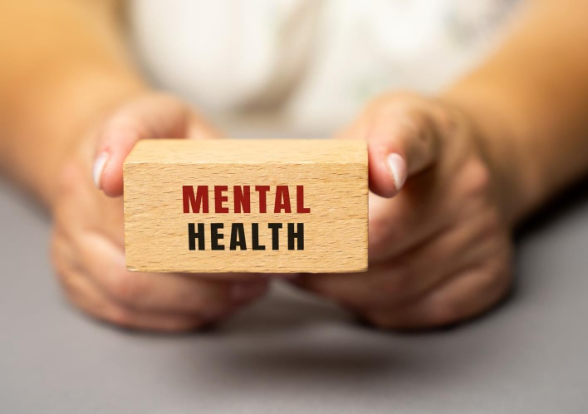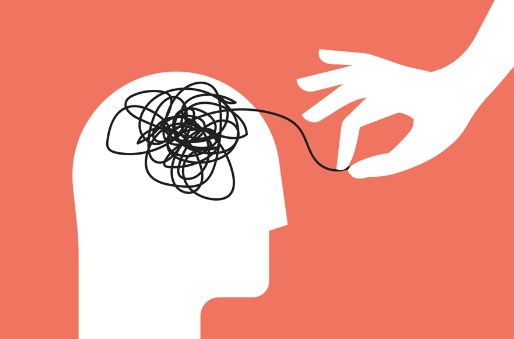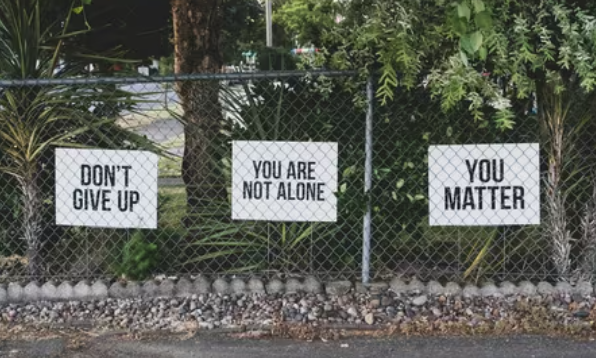
Mental Health: Overcoming Challenges, Embracing Solutions, and Catalyzing Change
Mental Health: Overcoming Challenges, Embracing Solutions, and Catalyzing Change”
In our global landscape, mental health remains an essential yet often overlooked aspect of overall well-being. Despite growing awareness and advocacy efforts, the issue of low self-reporting in mental health persists, presenting significant challenges to individuals, communities, and societies at large. However, amidst these challenges lie opportunities for growth, transformation, and positive change. By understanding the underlying factors contributing to low self-reporting, implementing effective strategies to tackle the associated taboos, and embracing innovative solutions, we can pave the way towards a more mentally resilient and supportive world.

The phenomenon of low self-reporting in mind health encompasses a range of barriers and complexities. Stigma, shame, and fear of judgment often deter individuals from seeking help or disclosing their struggles openly. Cultural norms, societal expectations, and systemic inequalities further exacerbate this reluctance, creating a pervasive culture of silence around mental health issues. As a result, many individuals suffer in silence, facing significant challenges in accessing timely support and resources.
To address these challenges, it is essential to tackle the underlying taboos and misconceptions surrounding mind health head-on. Education and awareness initiatives play a crucial role in dispelling myths, reducing stigma, and fostering open dialogue about mind health. By promoting empathy, understanding, and acceptance, we can create safe spaces where individuals feel comfortable seeking help and sharing their experiences without fear of judgment or discrimination.
Moreover, it is imperative to implement targeted strategies aimed at overcoming cultural and societal barriers to mind health reporting. Culturally sensitive approaches, tailored to the unique needs and perspectives of diverse communities, can help bridge the gap between individuals and mind health services. Community-based outreach programs, peer support networks, and culturally competent mental health professionals can play a pivotal role in building trust, breaking down barriers, and promoting help-seeking behaviors.

In addition to addressing stigma and cultural barriers, it is crucial to explore innovative solutions that leverage technology, data, and community engagement to enhance mind health reporting and support systems. Teletherapy platforms, mobile applications, and online support groups offer accessible and convenient avenues for individuals to connect with mind health professionals and access resources from the comfort of their own homes. Similarly, data-driven approaches, such as predictive analytics and machine learning algorithms, can help identify at-risk populations and tailor interventions to meet their specific needs.
Furthermore, fostering collaboration and partnership between stakeholders across sectors is essential for driving systemic change and creating sustainable solutions to address low self-reporting in mind health. Governments, policymakers, healthcare providers, community organizations, and advocacy groups must work together to prioritize mind health, allocate resources effectively, and implement evidence-based interventions that promote early intervention and holistic support.
As we look ahead, the path to overcoming the challenges of low self-reporting in mind health is paved with opportunities for innovation, collaboration, and collective action. By raising awareness, challenging stigma, and fostering supportive environments, we can empower individuals to prioritize their mental health and seek help when needed. Together, we can build a more resilient, inclusive, and compassionate world where everyone has the support and resources they need to thrive mentally, emotionally, and psychologically.
One crucial aspect of overcoming low self-reporting in mind health is the need for comprehensive mental health education and literacy initiatives. By integrating mental health education into school curricula, workplace training programs, and community outreach efforts, we can empower individuals with the knowledge and skills to recognize, understand, and address their mental health needs. Education also plays a vital role in equipping families, friends, and caregivers with the tools and resources to provide effective support to their loved ones.
Additionally, fostering culturally competent and inclusive mind health services is essential for ensuring equitable access to care for all individuals. This requires actively addressing systemic barriers, such as language barriers, cultural biases, and socioeconomic disparities, that prevent marginalized communities from accessing quality mind health care. By prioritizing diversity, equity, and inclusion in mental health service delivery, we can create a more responsive and accessible mental health system that meets the needs of diverse populations.
For the latest updates-click here.


